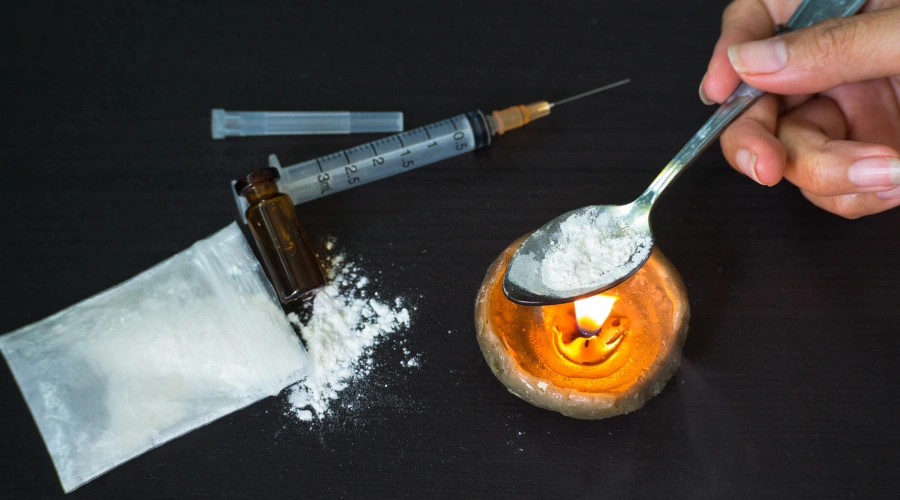Smoking Ketamine And Potentially Dangerous Side Effects
At its core, ketamine is a dissociative drug. It affects the central nervous system, making people feel detached from their bodies and surroundings. You can consume ketamine in different ways. Many users snort ketamine powder, mix it into drinks, or use nasal sprays. Some inject the drug.
Let’s get to the reason you are here: can you smoke ketamine?
If you’re concerned about a loved one, it makes sense to ask this question. Many people find substances or tools items for smoking among a person’s belongings and wonder what they are. Other people might want to know whether smoking ketamine is possible for themselves.
South Shores Detox is here to help. We treat ketamine addiction and other forms of substance abuse. This blog post will answer your questions about smoking ketamine, including whether it’s possible, potential side effects, and getting help.
Can You Smoke Ketamine?
Yes. You can smoke ketamine. Ketamine comes in different forms, including powder and its liquid form. In its white powder form, ketamine is sometimes mixed with another drug when it’s smoked (though, not always). For example, a person might mix ketamine with tobacco or cannabis before smoking it.
When you heat ketamine to smoke it, it loses some of its potency. This can lead people who use smoking as a consumption method to consume the drug in larger amounts, causing dangerous, unpredictable effects. No matter how it’s used, ketamine can cause psychological dependence and addiction.
The first danger associated with smoking ketamine, specifically, is the potential for respiratory problems. Smoking can damage your respiratory system and irritate the lungs. In some cases, it may cause chronic breathing issues.
What are the Risks of Smoking Ketamine?
In addition to respiratory issues, ketamine users may experience a number of health complications. Here are some of the other risks and dangers associated with smoking ketamine.
- Hallucinogen persisting perception disorder, which has been reported weeks after ketamine use and may include prolonged visual disturbances.
- Memory loss, anxiety, and depression resulting from long-term use.
- Changes in heart rate and blood pressure.
- Drowsiness, immobility, and sedation.
- Dangerously slow or shallow breathing.
- Psychosis (especially at high doses).
- Kidney damage and failure.
- Impaired judgement.
- Abdominal pain.
- Blurred vision.
- Agitation.
- Nausea.
Ketamine is a schedule III drug. With this in mind, challenges like legal issues can also emerge for those who engage in recreational use.
Is Mixing Ketamine With Other Drugs Dangerous?
Even though it’s common for people to smoke ketamine mixed with other drugs, doing so is dangerous. Some of the drug’s effects may be heightened if it’s mixed with other substances. Using multiple drugs at once can increase the risk of overdose.
For example, benzodiazepines and alcohol are sometimes used with ketamine at parties. Both of these drugs are central nervous system depressants that can cause difficulty breathing. Other drugs are frequently involved in cases of ketamine toxicity.
Ketamine Bladder Syndrome
People who use ketamine regularly can experience urinary and bladder issues. These include bladder inflammation, painful urination, and incontinence (the inability to hold in urine).
Research continues to look at how people going through lasting consequences of drug use like ketamine bladder syndrome can find relief.
Know the Warning Signs of Ketamine Use in a Loved One
If you suspect that someone you know is smoking ketamine, you might wonder what to look out for. Beyond possession of the drug, here are some potential indicators you might notice in someone who is abusing ketamine.
- Entering a “k-hole” (state of dissociation) following use of the drug.
- An increased need for privacy or secrecy.
- Impaired motor function and coordination.
- Paranoia, hallucinations, or delusions.
- Changes in personality or behavior.
- Disorientation and confusion.
- Mood swings.
- Slurred speech.
- Dilated pupils.
If you feel that you might have a problem with ketamine abuse personally, it is critical to seek help. It’s never too soon or too late to reach out for support.
Why Do People Smoke Ketamine?
People who use ketamine recreationally often do so for its dissociative effects. Many people try ketamine for the first time as a party or club drug.
Alternatively, ketamine abuse can begin with a prescription. Since ketamine can be prescribed for treatment resistant depression and acute pain, a person might try it under medical supervision at first and start misusing the drug later.
Or, one might attempt to self-medicate conditions like these without a prescription.
Treating underlying causes is crucial when drug use is influenced by a concern like a mental health disorder. If a co-occurring condition is affecting you or your loved one who is experiencing ketamine addiction, we can help.
Effective Ketamine Abuse Treatment and Recovery Support
The most effective way to avoid new or worsened long-term effects associated with smoking ketamine is to stop using the drug. South Shores Detox provides evidence-based drug abuse treatment for those using ketamine.
Medical Detox for Ketamine Abuse
People who use ketamine regularly may experience withdrawal symptoms upon discontinuation, such as drug cravings. For this reason, medical detox can be crucial. Our medical professionals will monitor your loved ones vital signs and treat withdrawal symptoms as needed until they’re physically stable and ready to start therapy.
Inpatient and Outpatient Programs
The inpatient and outpatient programs at our California treatment center utilize the most evidence-based therapies used for addiction. With multiple program options available, clients are able to choose the treatment schedule that fits their needs best. During the intake process, we can recommend a starting level of care if needed.
Call South Shores Detox for Ketamine Addiction Treatment
Ketamine affects the body and mind in serious ways. It’s important that you do not overlook the potential consequences of ketamine abuse, misuse, or addiction. South Shores Detox takes a whole-person approach to treating ketamine abuse and underlying causes.
Please call our admissions line to find help for yourself or a loved one struggling with ketamine addiction today. We’re here to help you start the recovery process and find solutions.
FAQs About Smoking Ketamine and Potential Risks
Is ketamine addictive?
Yes. Although ketamine can be used for medical purposes, it is an addictive controlled substance.
What are the other names for ketamine?
People use a number of different nicknames for ketamine. For example, special K, cat valium, cat tranquilizer, super K, kit kat, or vitamin K.
Can smoking ketamine cause memory loss?
Yes. Researchers have found an association between recreational ketamine use and lower activity of brain regions for spatial memory. The brain changes caused by ketamine are likely responsible for memory problems in those who engage in long-term ketamine use.
References
- Ketamine. DEA. (n.d.-b).
- Baetens, E., D’Hondt, D., Jacobs, W., Lammens, M., Wood, D., & Win, G. D. (2024, December 20). Ketamine-induced uropathy: The detrimental effects of chronic ketamine abuse beyond the bladder-A case report with a brief literature review. Journal of Urological Surgery.
- Orhurhu, V. J. (2023, January 30). Ketamine toxicity. StatPearls [Internet].
- Strous, J. F. M., Weeland, C. J., van der Draai, F. A., Daams, J. G., Denys, D., Lok, A., Schoevers, R. A., & Figee, M. (2022, March 18). Brain changes associated with long-term ketamine abuse, a systematic review. Frontiers in neuroanatomy.




